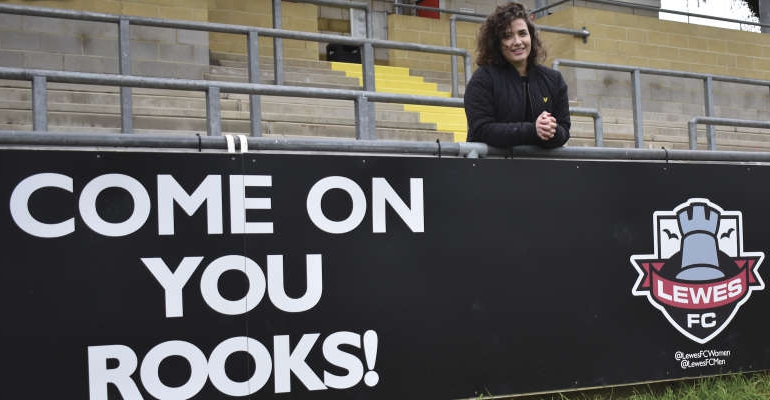
Lewes FC is a football club punching well above its weight. Not only do they play at an extremely high level, they are dedicated to making social changes for good. Sara Whatley met with CEO powerhouse Maggie Murphy to talk football politics, their stance on equality, fan ownership and the love of the game
When Maggie Murphy was 13, she came over from her Isle of Wight home, to play football against Lewes FC at The Dripping Pan, their hallowed home ground. At that time there were no girls clubs where she lived so football-mad Murphy joined her local women’s team, despite being slightly underage. Playing undercover using someone else’s name, as ‘a ringer’ she scored three goals and says from that moment on, Lewes was indelibly linked to football in her memory.Over twenty years later I met up with Murphy, now the CEO of Lewes FC, for a coffee and a chat about the club she runs, and to learn how Lewes FC is using football as a platform to make sweeping changes in equality, inclusivity, diversity, and anti-gambling.
“In 2017 I saw that Lewes FC had taken the decision to pay and treat their women’s and men’s teams equally. Finally I was seeing someone put their money where their mouth is. They were doing something that might cost them or cause them pain, but for me on the outside this was a ray of light,” Murphy enthused. She found the club’s decision so phenomenal and inspirational that she bought a share. Since 2010 Lewes FC has been owned by its fans and investors just like Murphy who see something that gives them hope. “I became an owner to say to them, I see you. I back you."
After she bought her share Murphy thought no more of it. She was living in Berlin and had just finished setting a Guinness World Record for the highest altitude football match ever played, which was part of the campaigning that she had been involved with for the previous couple of years.
“I started to get very active around gender equality and football. I’d lived all around the world and met many other women who felt similarly to me. Bit by bit, we got 30 women from 20 different countries, climbed to the top of Mount Kilimanjaro in Tanzania, and in the volcanic crater we played a 90 minute football match.” Murphy admitted it was not a high quality game as players could barely breathe up at that altitude!
The group called themselves Equal Playing Field, and this is what Murphy calls her “off pitch work.” Over the next couple of years Murphy carried on campaigning with the group for equality and diversity in football and set more world records; they are now up to five. This small group of women has grown into a bigger global network that come together to support each other and set records. “Our tag line is ‘Opportunity. Equality. Respect. Nothing more. Nothing less’,” Murphy told me.
Murphy put the rest of her abundant energy into her work: “I worked in anti-corruption and human rights as an advocate and policy expert,” she explained. When the FIFA corruption scandal broke in 2015 (U.S. federal prosecutors disclosed cases of corruption by officials and associates connected with FIFA (Fédération Internationale de Football Association)) it walked directly into her field of expertise. “I remember being infuriated by the people in charge of governing and promoting football in the world. They were in it for their own greed, power and interests and that was stifling the growth of women’s and youth football. I know of many female players around the world who didn’t receive funds from governing bodies that were allocated to them.” Murphy recalled a particularly poignant story a young woman had told her, of her team’s winnings being taken by a man from the football federation for safe keeping, and the team never seeing that money again.
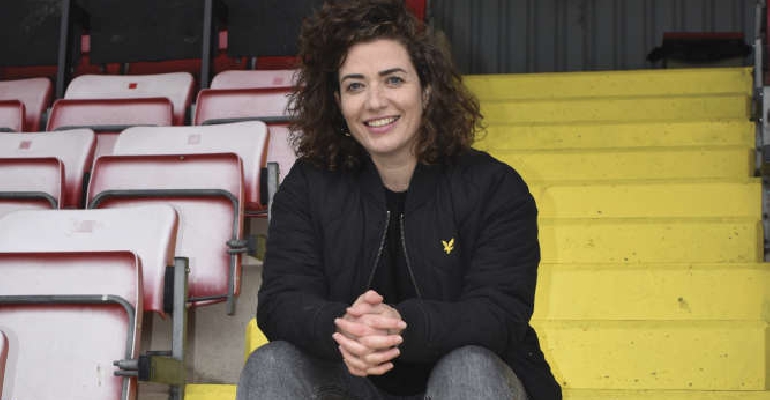
This shocking scandal acted as a wake up call for Murphy. Added to that all the millions of tiny decisions that were made which stopped women’s football thriving – poor pitches, hand-me-down kits, winning cup finals and it rarely being mentioned in the newspaper – suddenly built up to an issue for Murphy that could no longer be ignored. “There were no women involved in decision making, neither within local clubs nor right up to within FIFA. I’ve been very active in calling for more diversity in clubs at decision making level but also in companies making decisions around what or who to sponsor,” said Murphy. She explained that Lewes FC have recently had a big-brand fashion sponsor come onboard and invest in both the women’s and men’s teams. Murphy believes there is a concern that sponsors get stuck in ruts doing the same old thing, but to move forward they need to be bold and invest in something before it’s at the peak of its success.
Murphy was now fully politicised in her thinking around football, and Lewes FC had taken note. Going back to 2017 when she invested in her share of club ownership she thought she would never visit the club, or Lewes, or really have much more to do with it. But gradually the two spheres of Murphy’s world and the world of Lewes FC kept bumping into each other. They both received the same sponsorship from a third-party, which led them to be in a meeting together.
“We built a good relationship, good contacts. I met one of the directors and had a chat about how I was changing jobs, then a few weeks later she gave me a call and said ‘Hey! There might be a role at Lewes FC that you might be interested in!’ I thought, ‘I campaign about football, I don’t work in football.’ But I realised I had been set my own challenge to put my money where my mouth is.” And she took it.
As the General Manager, Murphy’s role was to oversee all of women’s football, but after two years she had branched out into all aspects of the club, and was delighted to be appointed to CEO. “I wanted to take the club to the next level after having such a positive affect on the women’s side,” she said. But it wasn’t just about football, it was maintaining the club’s principles, not selling out, doing everything ethically; basically trying to be that football club Murphy always dreamed of when she was playing as a little girl.
The thing that attracted Murphy to the club in the first place, their stance on equality, is only growing in strength today. Their hope was that other clubs would follow suit once they saw how well it worked, but so far Murphy says, “we understand that there might be one team in Lesotho that pay their women and men equally, but that’s how far you have to go to find another club [doing what we’re doing].”
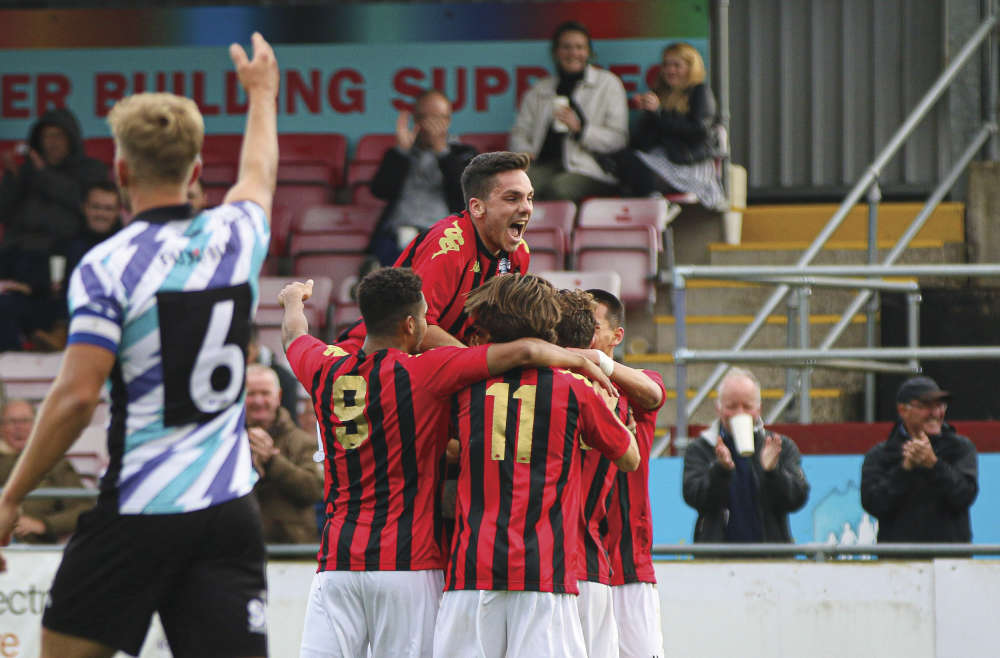
Picture by James Boyes
It’s more than just equal pay however; they split resources equally, play women and men at the same ground (most women’s teams don’t play at their own ground, they rent other grounds for them). They have the same training facilities and they market the games equally, which is saying to the wider public that they value the product equally. “To prove we value it equally we have had to raise the ticket prices every year for the past five years for the women’s games so they are the same as the men’s games,” explained Murphy, showing true change in action. “Ultimately it comes down to equal treatment and equal value,” she said.
And Lewes FC’s players reflect that. They support each other, going to each other’s games and creating a culture where every member is valued. Regardless of their stance, they play at an extremely high level; the women’s side is one of the top 20 clubs in the country and the men’s first team, The Rooks, are currently members of the Isthmian League Premier Division.
“This is a proper club,” said Tony Russell, The Rooks Manager. The men in particular love playing for a club that is well managed, above board, who pay its players on time, who have a good fan base and a good community. Lewes FC have created a club with purpose and vision, which is more than just the sum of its parts.
They are also dedicated to looking after their players on and off the pitch. Help with employment, study, learning opportunities, coaching courses, and even other roles in their own club are all identified. Ini Umotong is not only a striker for the women’s first team, she is also the Commercial Officer for the club; often football is a dual career for women.
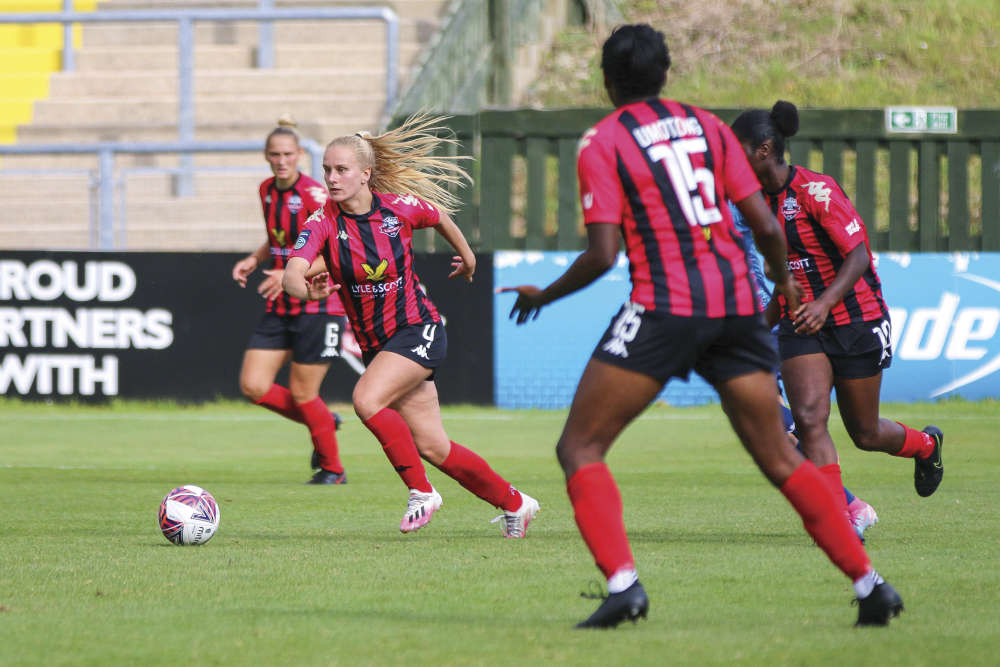
Picture by James Boyes
As we have already seen, Murphy is passionate about the equality issue for women’s football and having women in decision-making roles, but a brilliant example of that in action at Lewes FC is the women’s home kit. “Having a woman involved in designing our kit meant I could say, ‘hold on, do we have to have white shorts for the women?’ Now our women play in black shorts and our men white shorts, and hardly anyone notices. Our women are so much more comfortable and confident playing in black shorts; it takes a little bit of anxiety out of their day when they’re playing in front of hundreds of people.”
Another example is communication. Our coaches have learnt that male and female players have differing styles of communication and learning, so they have had to adapt their coaching style accordingly to get their messages across to the players.
Murphy believes another point holding back the growth of women’s football is the timing of the games. Many women who play women’s football would love to go and watch women’s football too, but all games kick-off on a Sunday afternoon when they are playing themselves.
But Lewes FC’s stance of using football for good and paving the path for change is fully in action. When the club went into community ownership in 2010, just after the financial crisis, a small number of Lewes people came together to buy it. This number grew from six people to 100 to now almost 2,000 owners from 35 different countries around the world.
Every one of these owners has the ability to exercise their democracy by voting in the Board of Directors and making many other decisions for the club, from the small to the big, all of which feed back into the club plans and influence things. Like the new Club Strategy which is published on their website for all to see and which increases transparency. “Every new owner gives us more clout when we fight for things such as reducing the amount of gambling promotion in football or reducing the gap in the FA Cup prize money (women currently earn less than 1% of what the men earn). This is a movement; it’s not just a football club.”
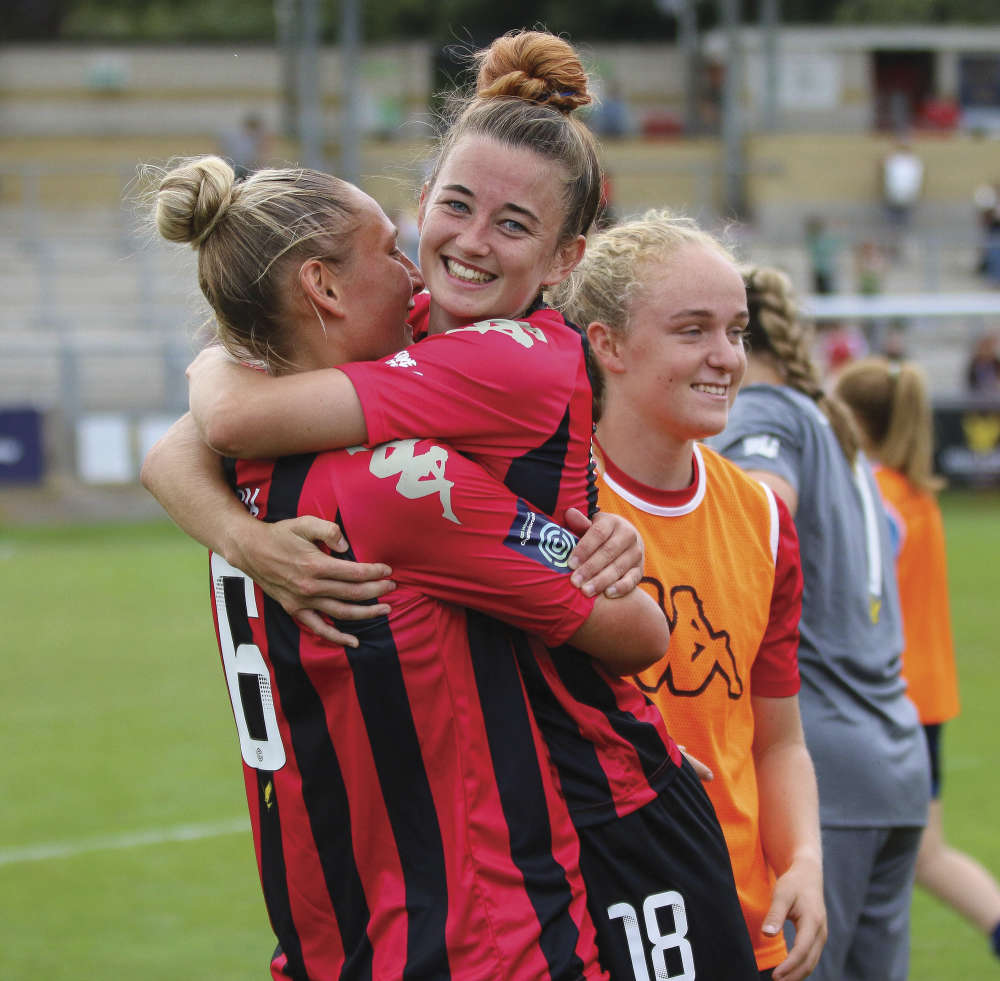
Picture by James Boyes
Football already has a huge influence on culture (think Marcus Rashford’s Football Against Food Poverty or players taking the knee to promote a message of anti-racism), which can be used for good or bad. There are many things in this world that need to change; inclusion, equality, representation, women in government to name but a few, and as Murphy said, “our choice is whether to use football to bring about changes. We’ll get there but we’ll get there a lot quicker if we use football.”
Ultimately though, Lewes FC is still a football club and they still want to win games and play the best football they can; they just want to do it ethically. A vital part of matches is the crowd – the support from fans. Murphy explained attendance has been up and down over the lockdowns, as restrictions came and went, but now they are really keen on encouraging new fans. “We open up the big doors to the ground now on match days instead of just having the turnstile, and have attendants showing you where to go. If you’re even slightly intrigued then come to a game! See if you like it!” encouraged Murphy.
I had one last question for Murphy before she disappeared back up to her crow’s nest office overlooking the pitch. Has she managed to hold onto her love of football now it’s her job?
“I find it incredibly stressful watching the Lewes games, we have to be 3-0 up before I relax. Otherwise I pace around the ground! It means so much now, it’s more than a game. It’s trying to prove football can be good both on and off the pitch.”
As Murphy has proved time and again actions speak louder than words, and so her love of football must run deep as you can find her playing with the Vets on a Friday night at The Dripping Pan – football coursing through her from the political, to the radical, to the studs on her boots.
Website: www.lewesfc.com
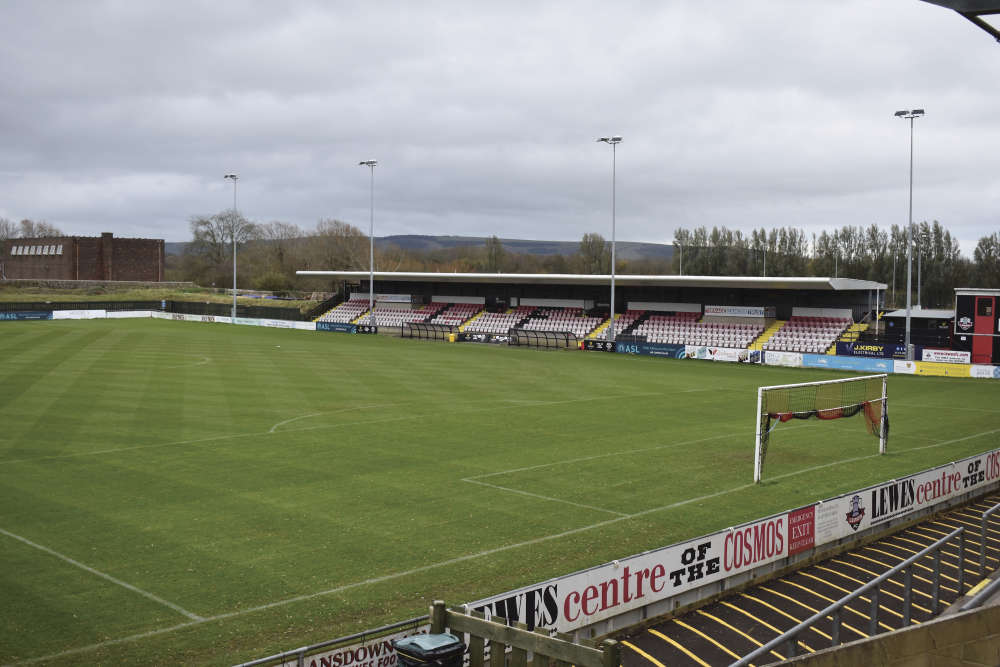

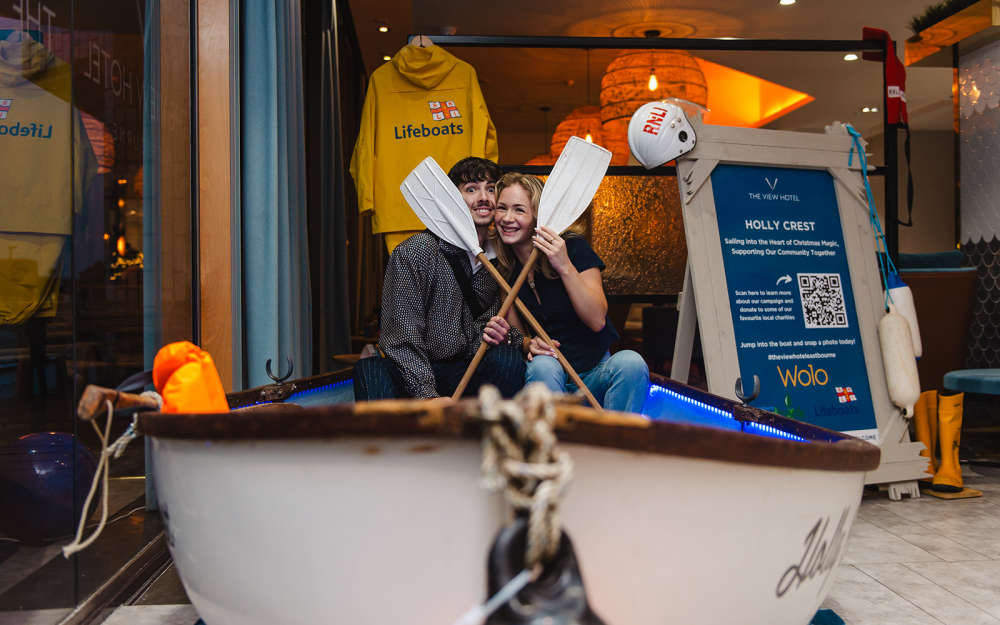 Charity: All Aboard the Ho Ho Ho Holly Crest!
Charity: All Aboard the Ho Ho Ho Holly Crest!
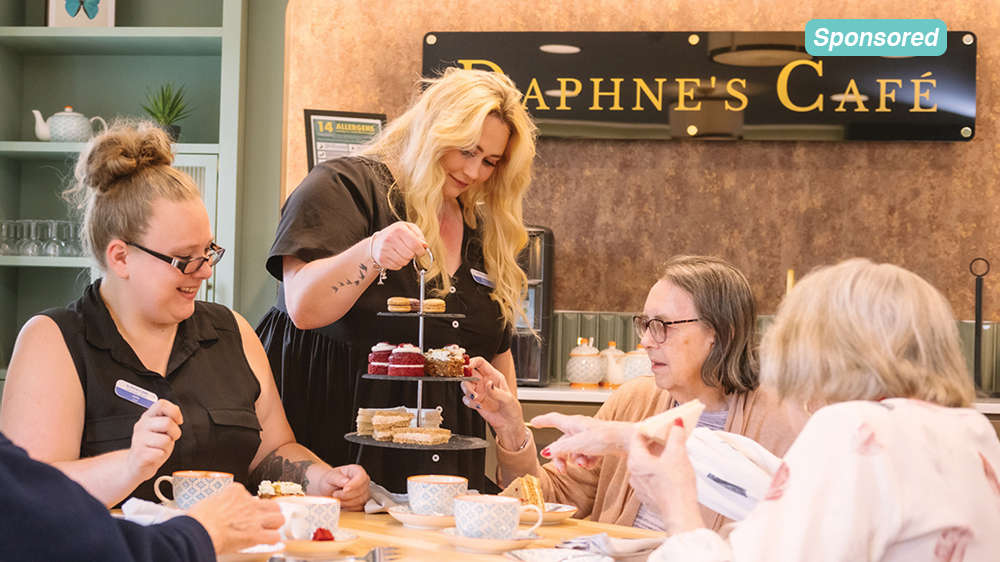 Hailsham House: More Than Just Care, It’s Home
Hailsham House: More Than Just Care, It’s Home
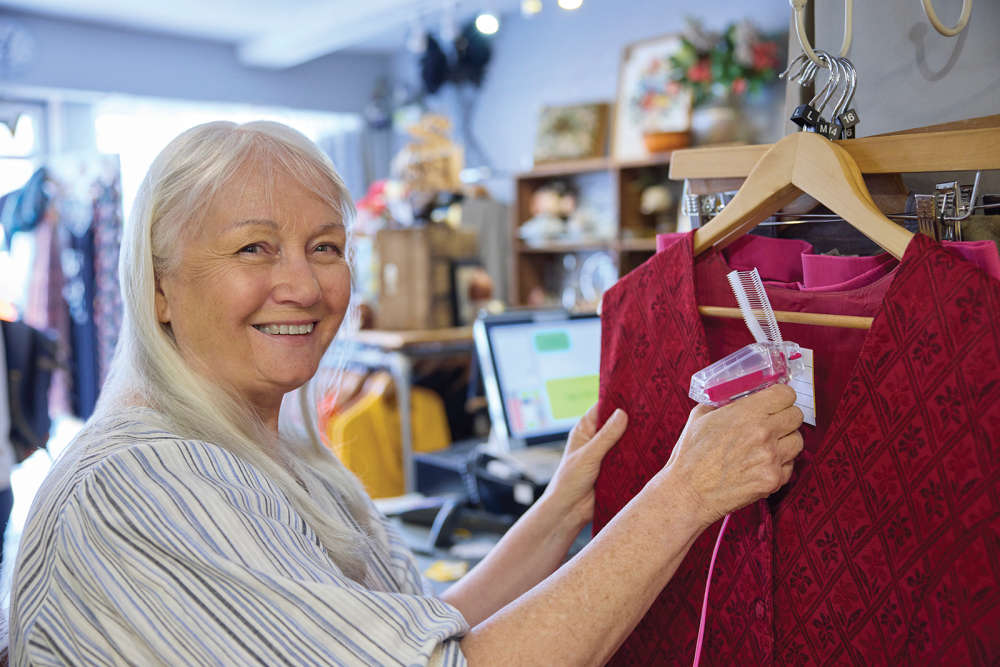 Age UK East Sussex Needs You!
Age UK East Sussex Needs You!
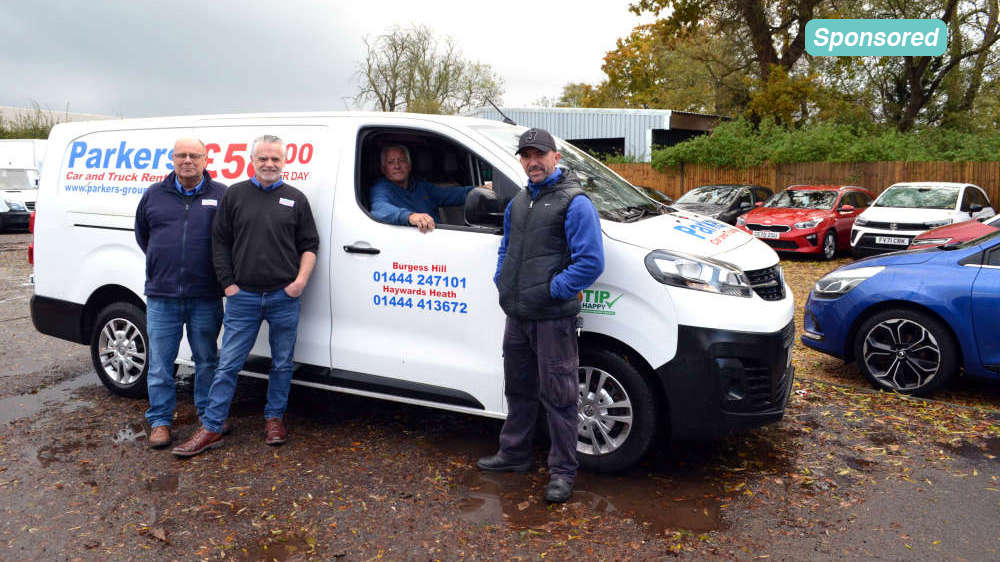 Parkers Car & Truck Rental Celebrate 75 Years
Parkers Car & Truck Rental Celebrate 75 Years
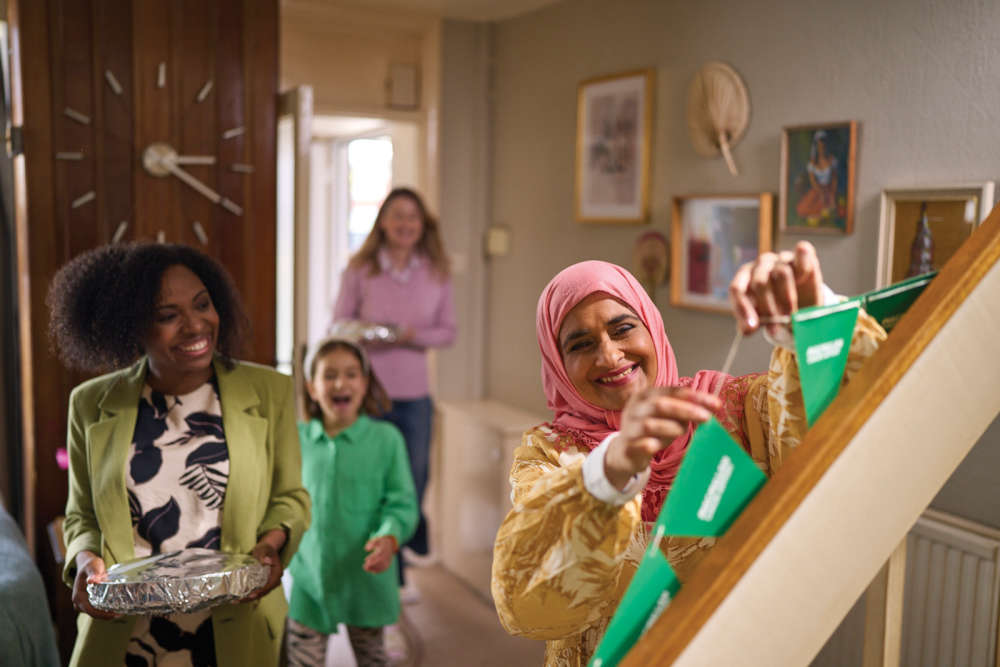 Have a Macmillan Coffee Morning!
Have a Macmillan Coffee Morning!
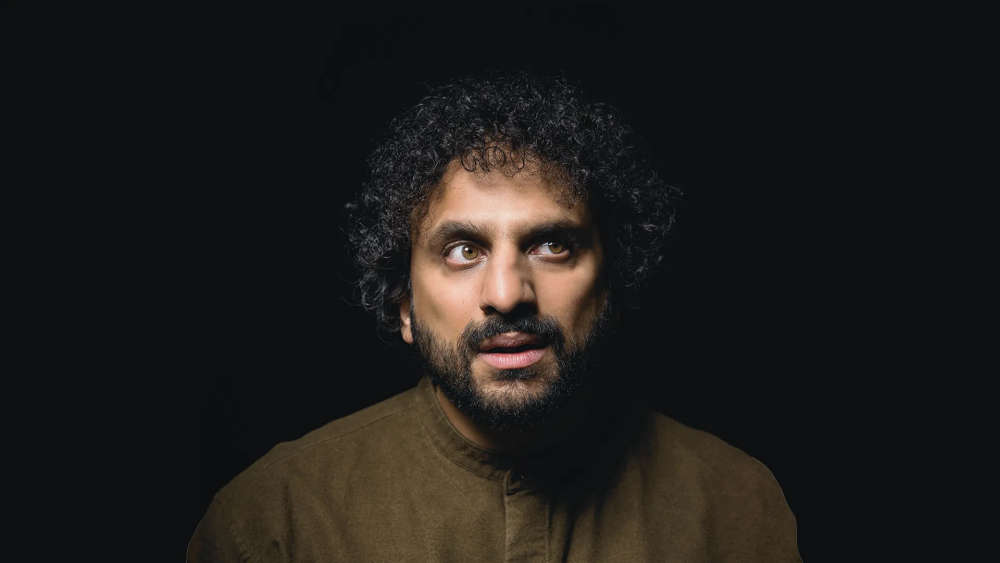 "I quite like to end up with a setlist that involves a catalogue of human misery..." Nish Kumar on his return to stand-up comedy
"I quite like to end up with a setlist that involves a catalogue of human misery..." Nish Kumar on his return to stand-up comedy
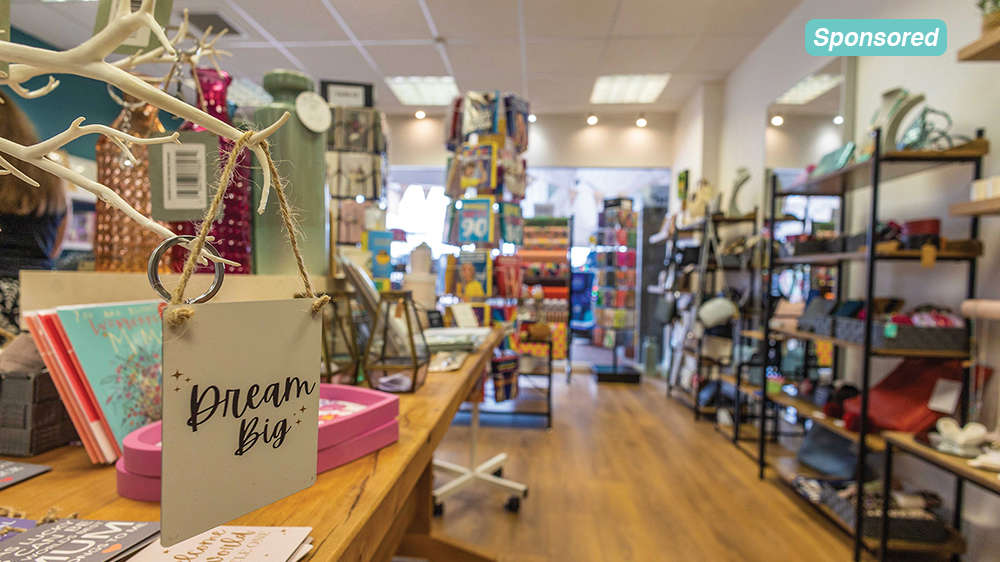 Pure Inspiration
Pure Inspiration
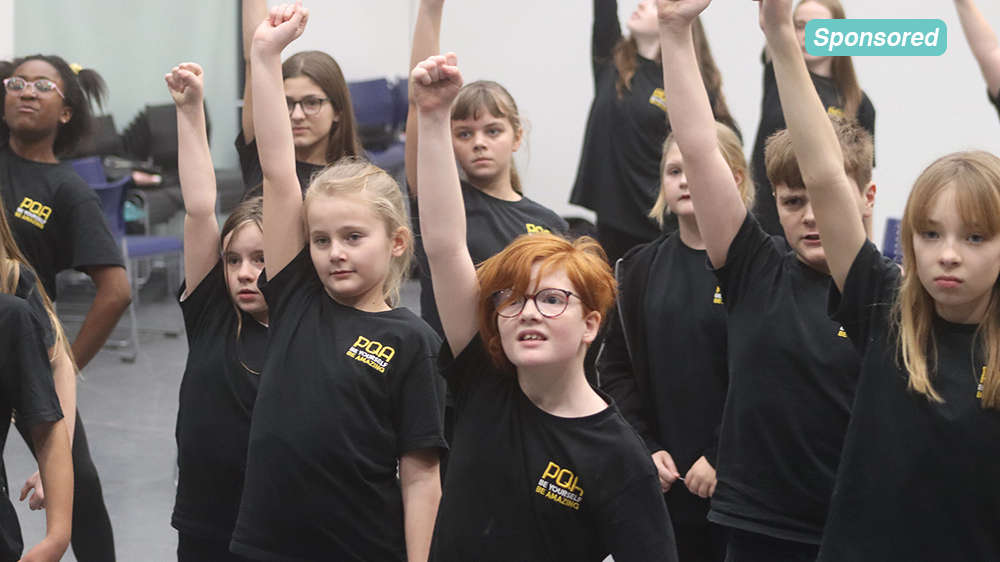 Creating a Dream at The Pauline Quirke Academy
Creating a Dream at The Pauline Quirke Academy
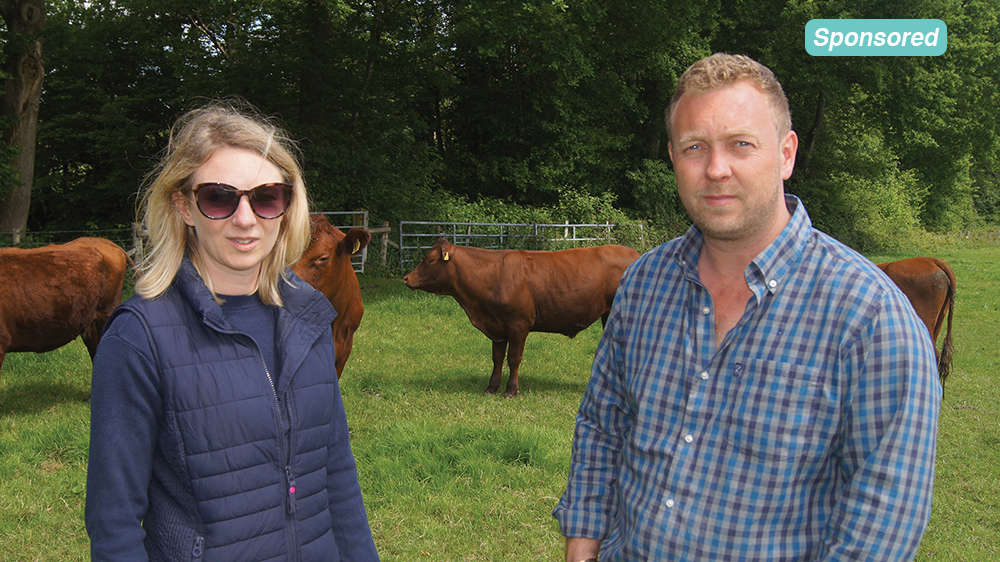 A Little Slice of Heaven
A Little Slice of Heaven
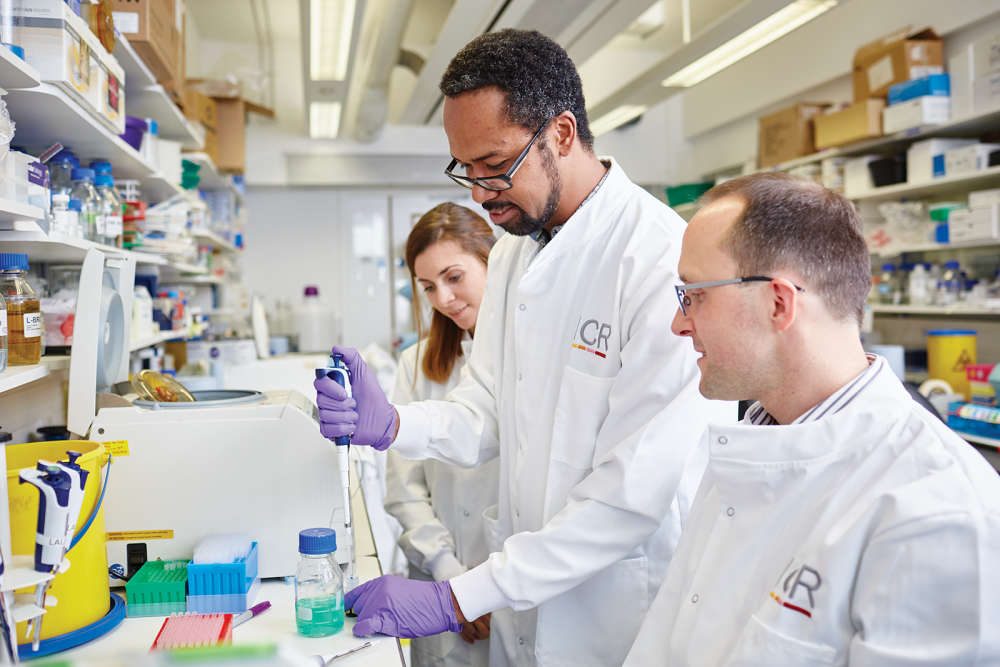 Charity: Institute for Cancer Research
Charity: Institute for Cancer Research
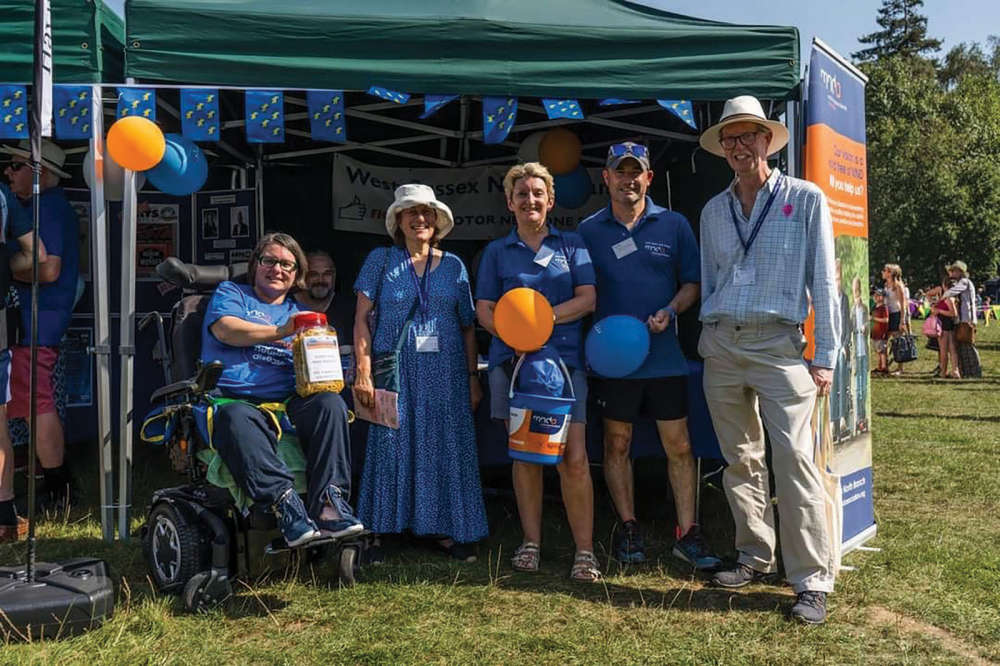 Volunteer for Motor Neurone Disease Association
Volunteer for Motor Neurone Disease Association
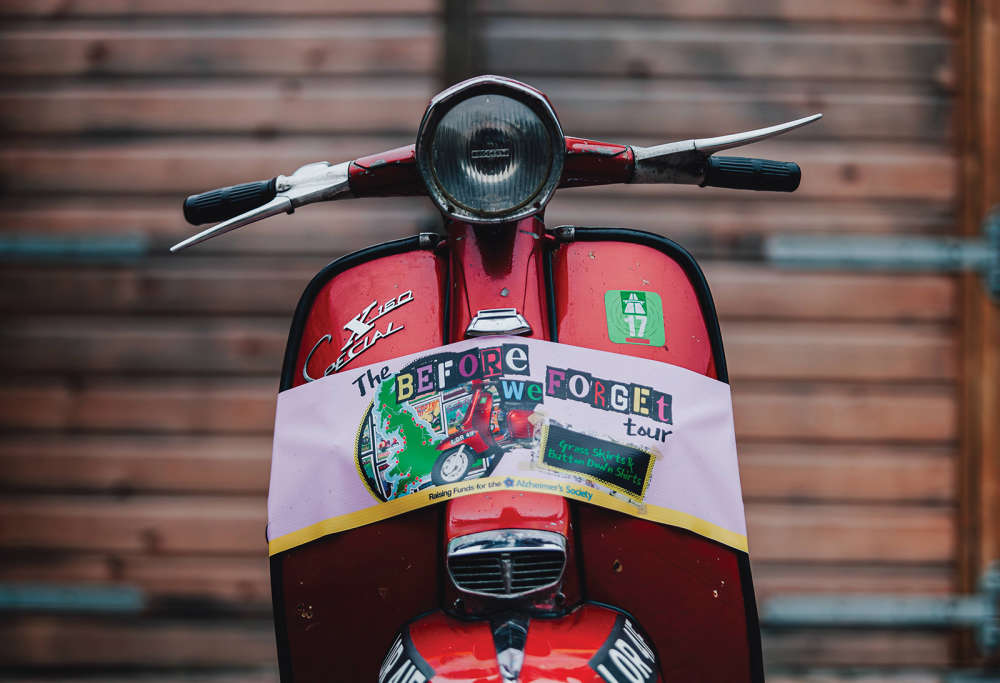 Riding to Success
Riding to Success
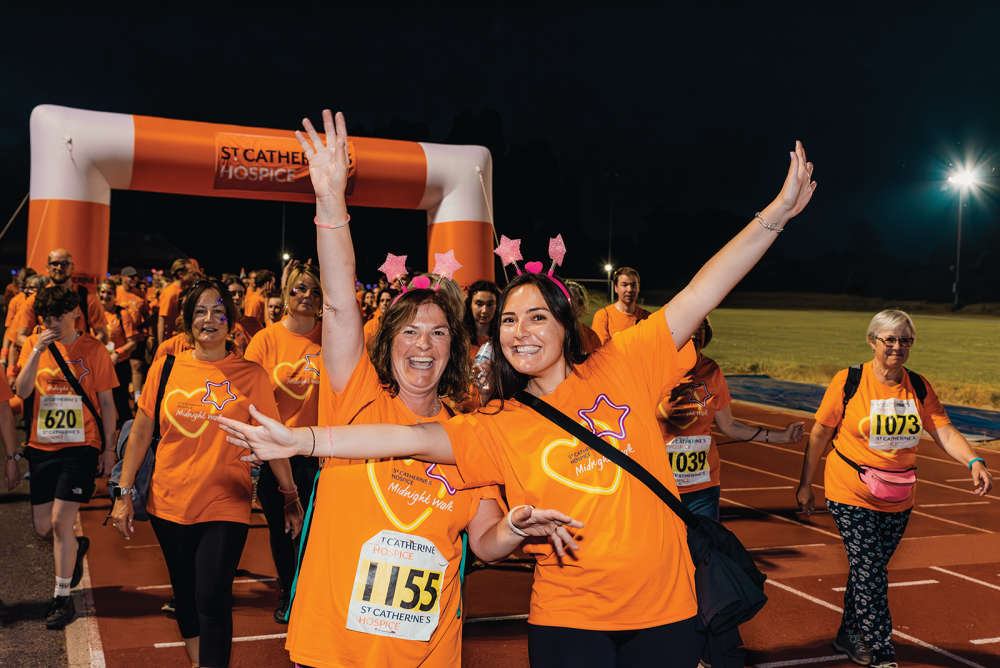 Step out for St Catherine’s Hospice
Step out for St Catherine’s Hospice
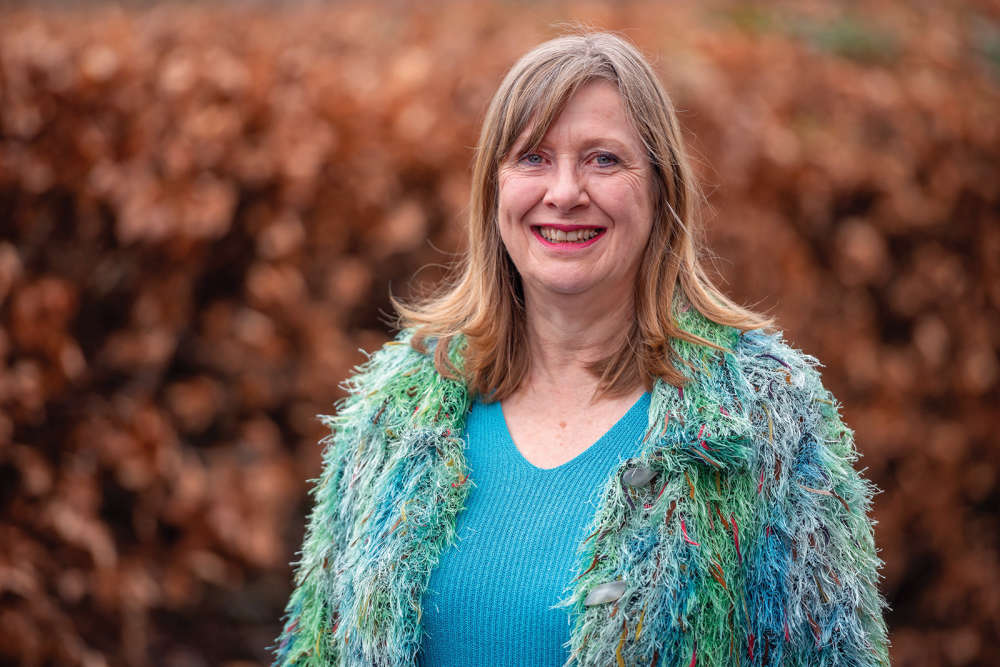 Homes for Ukraine: Opening Your Home and Your Heart
Homes for Ukraine: Opening Your Home and Your Heart
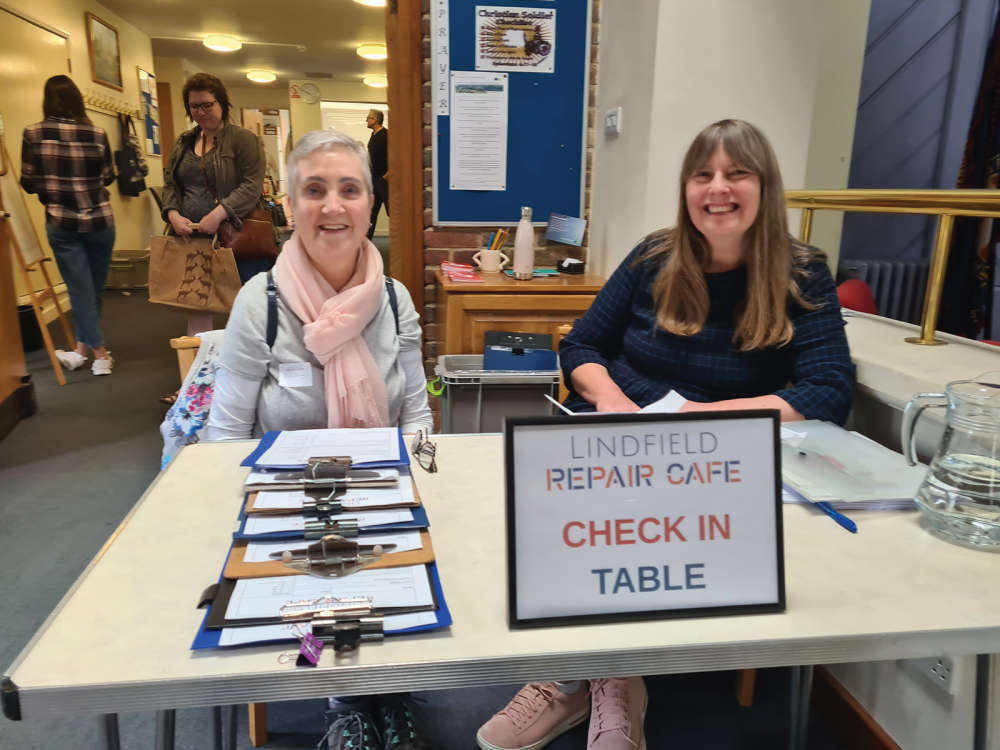 The Joy of the Repair Café
The Joy of the Repair Café
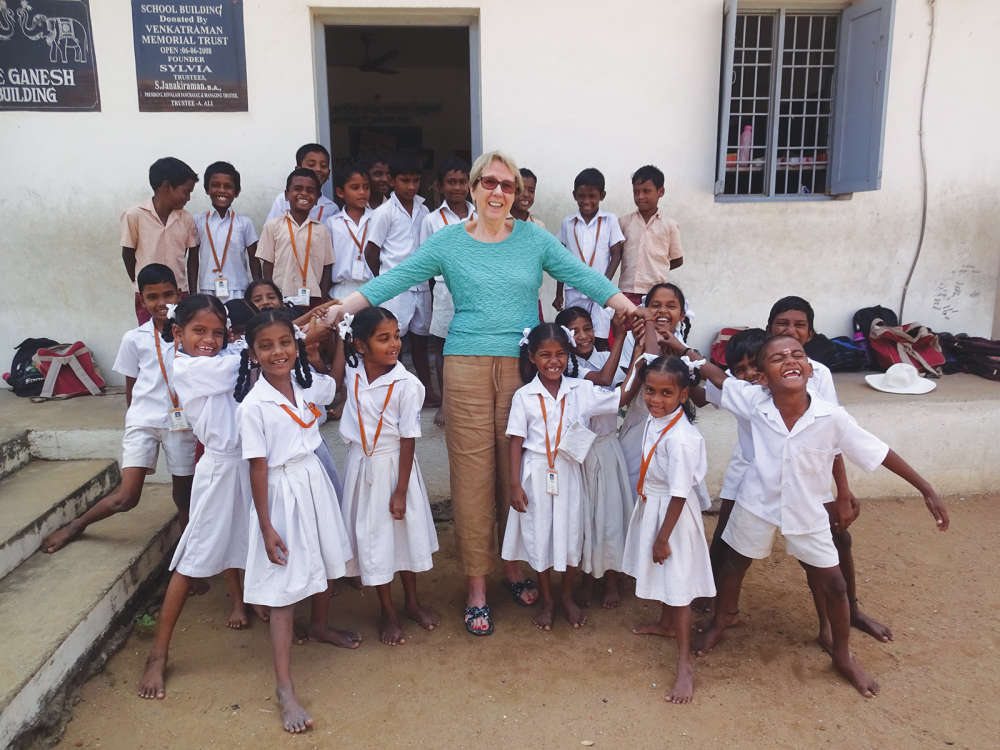 An Unlikely Retirement
An Unlikely Retirement
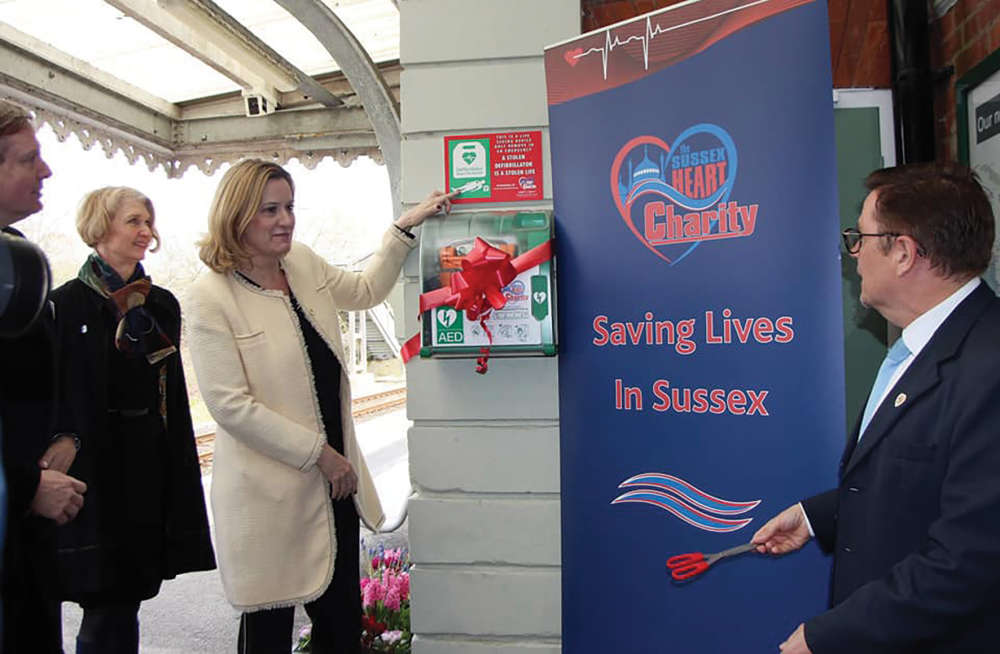 Matters of the Heart
Matters of the Heart
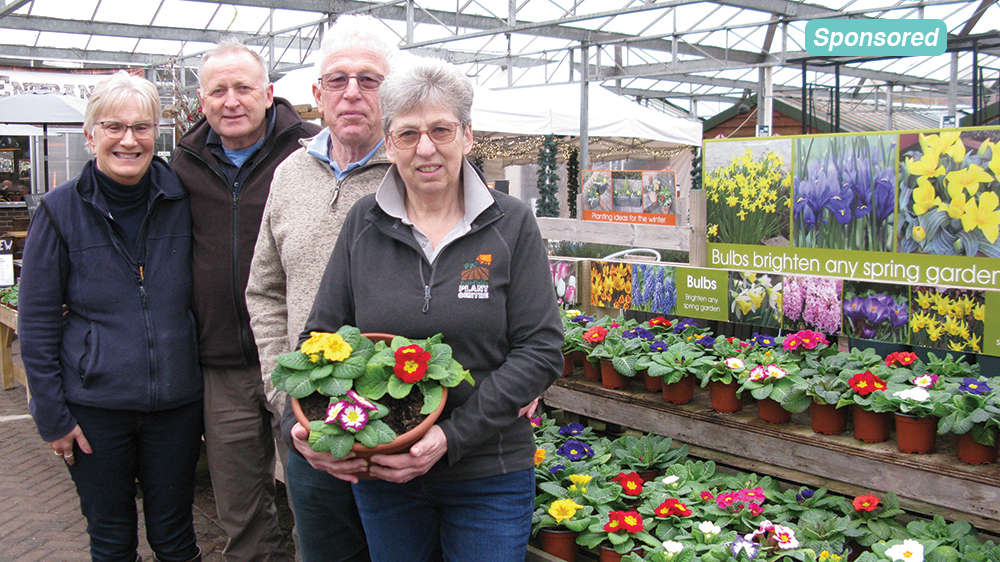 Rushfields: Celebrating 40 Years
Rushfields: Celebrating 40 Years
 Interview: Comedian Connor Burns brings his Vertigo tour to Sussex
Interview: Comedian Connor Burns brings his Vertigo tour to Sussex
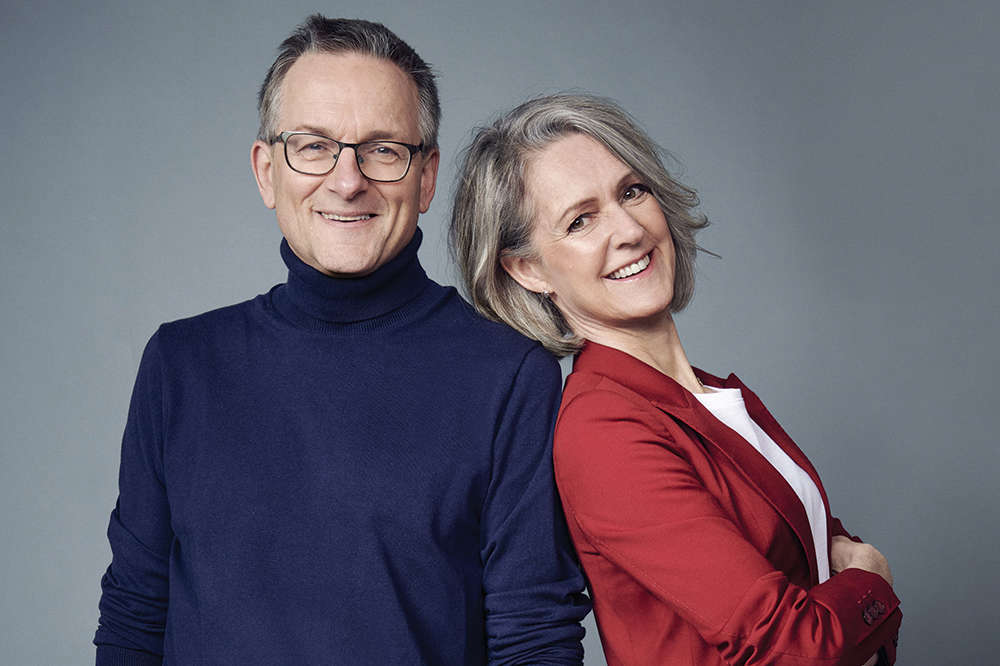 A Double Dose: Interview with Michael Mosley and Clare Bailey
A Double Dose: Interview with Michael Mosley and Clare Bailey